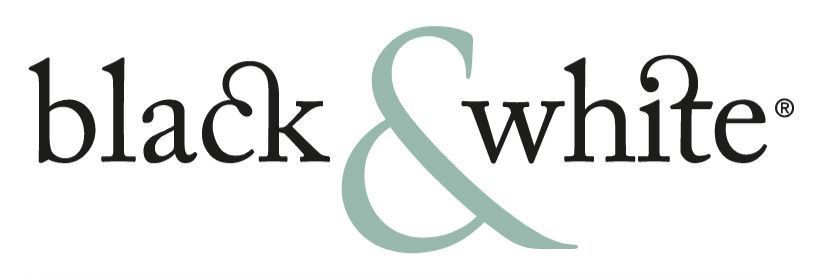Decoding NZ Tax: A Guide for Hawke's Bay Businesses & Individuals
Your Jargon-Free Guide to Taxation and Accounting in Hawke's Bay
Key Takeaways
- The New Zealand tax system for businesses and individuals primarily involves four key types: Goods and Services Tax (GST), Pay As You Earn (PAYE), Income Tax (including paying Provisional instalments), and Withholding Tax.
- The current company tax rate in New Zealand is a flat 28%, while personal income tax rates operate on a progressive scale, reaching a top rate of 39% for income over $180,000.
- A recent government initiative, the "Investment Boost," offers a significant opportunity for businesses by allowing a 20% accelerated depreciation claim on new asset purchases.
- Modern accounting and taxation services are evolving beyond simple compliance, using technology to provide strategic tax planning and high-value financial advice for your business needs.
Let's be honest: for many people in Hawke's Bay, the word "tax" brings on a mild headache. It’s one of life's certainties, but the rules can feel complex and ever-changing. The good news? While tax is mandatory, confusion isn't. With the right guidance, navigating the world of accounting and taxation can be straightforward, leaving you more time for running your business or enjoying your life. The financial landscape is becoming increasingly significant; in fact, the New Zealand accounting services sector is projected to grow by 2.2% annually, reaching a market size of $5.1 billion by 2026. This growth highlights the increasing complexity and importance of sound financial management, making a skilled taxation accountant an invaluable partner.
As your local Hawke's Bay accounting firm, we believe in making finance easy to understand. This guide will break down the core pillars of the New Zealand tax system without the jargon, so you can feel confident and in control.

The Core Pillars of NZ Tax: A Simple Breakdown
For most individuals and businesses, the New Zealand tax system boils down to a few key types of tax. Understanding what they are and who they apply to is the first step towards mastering your financial obligations. Here’s a look at the main players you'll encounter.
Goods and Services Tax (GST)
GST is a 15% tax applied to the price of most goods and services sold in New Zealand. If you're running a business, this is a big one. Any business with an annual turnover of $60,000 or more must register for GST. This means you'll need to charge GST on your sales and file regular GST returns with the Inland Revenue Department (IRD). You can also claim back the GST you pay on your business expenses. For any small business, managing GST is a fundamental part of your financial operations. We understand that getting this right is crucial, which is why we can work in partnership with you to minimise your tax and help you achieve your key objectives.
Pay As You Earn (PAYE)
If you have employees, you'll be dealing with PAYE. It’s the system employers use to deduct income tax directly from their employees' salaries or wages. This money is then passed on to the IRD on the employee's behalf. PAYE also includes other deductions like ACC levies, KiwiSaver contributions, and student loan repayments. Managing payroll and PAYE correctly is a critical compliance task for any employer.
Provisional Tax
Ever wondered how self-employed people or businesses pay their income tax without a boss to deduct it for them? The answer is provisional tax. Instead of one large bill at the end of the year, provisional tax allows you to pay your income tax in instalments. This generally applies if you had more than $5,000 of tax to pay in your last tax return. It helps with cash flow management and prevents a shock tax bill. A good accountant can help you accurately forecast your earnings and ensure you’re putting aside the right amount.
Withholding Tax
Withholding tax is relevant for businesses that pay contractors for their services. In many cases, you are required to "withhold" a portion of the payment and send it to the IRD on the contractor's behalf. The rate varies depending on the industry and whether the contractor has provided their IRD number. It’s designed to ensure that contractors meet their tax obligations throughout the year.
NZ Tax Rates: What You Actually Pay
Understanding the different types of tax is one thing, but what about the actual rates? In New Zealand, the tax rates differ for companies and individuals.
For businesses structured as companies, the system is straightforward. New Zealand's company tax rate is a flat 28% on profits. For individuals, including sole traders and partners, the income tax system is progressive. This means the rate of tax you pay increases as your income does. The rates are tiered, topping out at 39% for any personal income earned over NZD $180,000. Navigating these brackets is a key part of personal tax planning.

Beyond Compliance: The Future of Tax Advice
In the past, an accountant's job was often seen as purely historical—lodging a tax return based on what had already happened. Today, that role has evolved dramatically. As a proactive accounting firm, we see our job as looking forward, not just back.
The industry is seeing a major shift, where the increasing adoption of AI and cloud-based software like Xero and MYOB is automating routine tasks. This is fantastic news for business owners. It means your tax advisor can spend less time on basic data entry and more time on high-value strategic tax planning and financial advice. This is where a true accountant provides their worth—by helping you structure your finances, plan for growth, and make smarter decisions.
Capitalising on New Opportunities: The 2025 Investment Boost
A perfect example of proactive tax advice is helping clients take advantage of new legislation. The recent budget introduced an exciting opportunity for businesses. Under the new "Investment Boost" initiative, businesses can claim a 20% accelerated depreciation deduction on new asset purchases (https://www.ird.govt.nz/income-tax/income-tax-for-businesses-and-organisations/types-of-business-expenses/new-assets---investment-boost). This allows you to write off the cost of new equipment faster, reducing your taxable profit and improving your cash flow. Knowing about and acting on these kinds of changes is what separates basic tax compliance from strategic financial management.
Get Prepared: Your Hawke's Bay Tax Checklists
Feeling more informed? The next step is getting organised. To make life even easier, we've created a series of simple, practical tools to help you prepare for tax time. We offer a range of downloadable checklists for various needs , whether you're an individual, running a farm, or managing a trust or business. Having the right information ready makes the entire process smoother and more efficient for everyone.
Partnering with a Local Hawke's Bay Taxation Accountant
Navigating the world of tax doesn't have to be a solo journey. Having a local, experienced tax advisor on your side provides not only peace of mind but also a strategic advantage. We pride ourselves on being easy to talk to and providing solutions tailored to your specific situation, whether you're a startup, a small business, or a well-established farm.
Our goal is to be more than just your accountant; we want to be your financial partner. If you're ready to take the confusion out of your tax and accounting, we invite you to book a free initial consultation with our team. Let's talk about your business needs and how we can help you achieve your financial goals.
_ Disclaimer: The information provided in this article is for general informational purposes only and does not constitute professional financial or tax advice. Tax laws and regulations are complex and subject to change. We strongly recommend consulting with a qualified professional accountant or tax advisor to discuss your specific circumstances before making any financial decisions.







